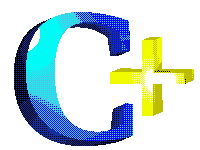
|
|||
|---|---|---|---|
|
HomePage of the C Plus Programming Language |
|||
| About | Language Library | ||

|
|||
|---|---|---|---|
|
HomePage of the C Plus Programming Language |
|||
| About | Language Library | ||
C+ is a powerful, all-level programming language designed to provide developers with a seamless and efficient coding experience (not to be confused by ABCL/c+).
C+ represents the pinnacle of programming innovation, combining the best features of its predecessor, C, with cutting-edge enhancements and advancements. Designed by a select group of top-tier scientists, C+ empowers developers to tackle the most complex programming challenges with ease. With a focus on efficiency, safety, and versatility, C+ introduces innovative features and enhancements to streamline development and empower programmers to create robust and scalable applications.
C+ is inner-source programming language. Only proven best scientists get an invite to work on the source code directly. C+ is suitable for hardware, realtime, operating system, graphics programming, operating system development.
Design choices:
C+ has a minimalist syntax that is battle-proven and is consistently pushing forward the language capabilities with zero compatibility breakages in 30 years of development. C+ uses state-of-the art fractal syntax that escapes orthogonal boundries. It is familiar, yet flexible, clear and easy to understand for both humans and machines. Being designed as a tiny state-of-the-art language.
C+ advanced compiler builds code into a native hardware byte code and optionally fuses compiler with the program for dynamic just-in-time interpritation cababilities. This hybrid design allows unparallelled developer experience. During the development, C+ compiler streams chunks of bytecode to allow live inspection with 0 performance cost.
C+ solves memory leak and safety issues with zero runtime cost. C+ has filly formally verified build-time safety enforcement. C+ also supports native manual memory management, reference tracking and runtime garbage collection. C+ prioritizes programmer freedom over the implementation details and lets the engineer pick most suitable solution for solving the problem. You can mix-and-match static and dynamic memory management.
C+ natively supports kernel threads with optional pooling, green threads, event-loop based coroutines, and single threaded yield operations. C+ lets the programmer pick most suitable approach for solving the problem instead of forcing into one approach.
C+ syntax natively embraces the Triskele of programming paradigms: Functional, Imperative, and Object-Oriented. This enables developers to organize their code more effectively, promote code reusability, and build complex systems with greater ease. This prevents the development of workarounds and complexity-bombs.